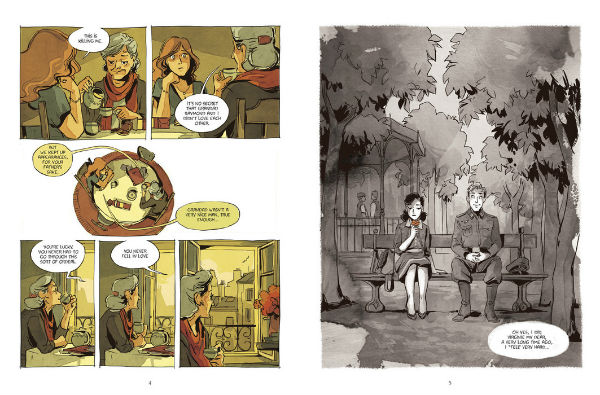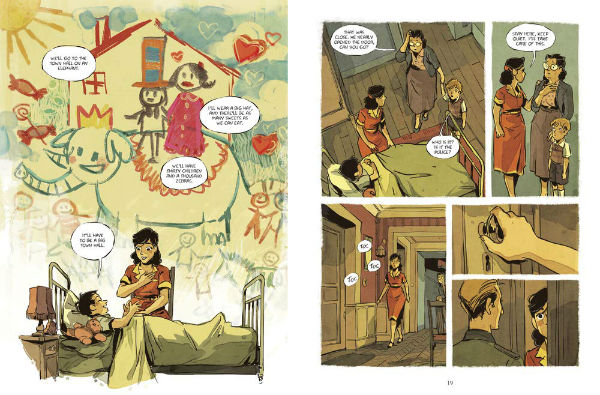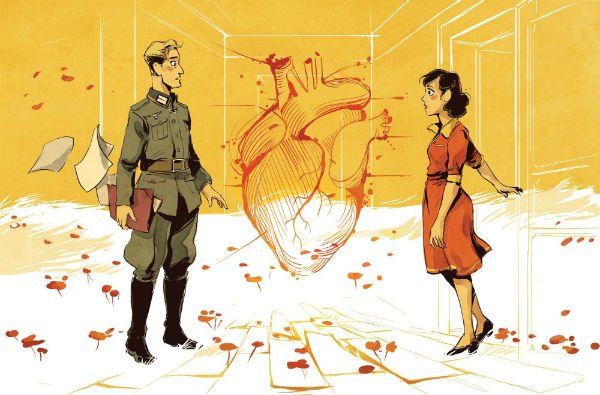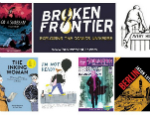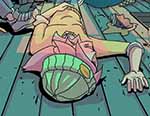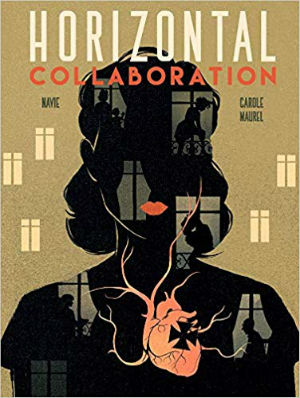 There is something decidedly prosaic about a title like Horizontal Collaboration until one is informed of what the term once meant to the French. During World War II, it referred to illicit relationships between women and members of the occupying German forces. When those troops left in the aftermath of Hitler’s humiliating failure, they left behind what we may call victims, but what their countrymen labelled traitors. Their crime: Choosing to sleep with the enemy.
There is something decidedly prosaic about a title like Horizontal Collaboration until one is informed of what the term once meant to the French. During World War II, it referred to illicit relationships between women and members of the occupying German forces. When those troops left in the aftermath of Hitler’s humiliating failure, they left behind what we may call victims, but what their countrymen labelled traitors. Their crime: Choosing to sleep with the enemy.
What Horizontal Collaboration creators Navie and Carole Maurel do — marrying the former’s rigour as a researcher with the latter’s talent as an illustrator — is bring to life those long-forgotten women, condemned to pay the price for circumstances not of their making. They prove that the idea of love is never simple, and that what some may describe as an act of treason may, for someone else, be an act of resistance. They also shed light on forgotten corners of history that have only recently begun to be enticed into the light.
Bearing the weight of this history on her shoulders is a young nurse named Rose, who falls in love with a German soldier named Mark. As the mother of a child whose husband is a prisoner of war, Rose’s neighbours expect her to behave in a certain way. She has to hide her affair from their prying eyes, while those who judge her in the rundown Parisian building they all call home must deal with their own secrets. One is a prostitute, another a victim of domestic abuse, a third an alcoholic who cheats on his wife. These sub-plots sometimes hinder the narrative rather than propel it forward, but inadvertently manage to show how events that shape world history affect individual histories just as powerfully.
There is much to recommend Horizontal Collaboration, from the gentle humour to its unforced meditation on complex issues. The undeniable star is its art, which skillfully renders worlds of meaning with a few strokes. Panels dissolve into darkness, forms become shadows, and human hearts throb and wither as Rose and Mark try to save their love. Some pages use a single colour for a flashback; others use sources of light within individual panels to draw attention to certain actions. This is mature work handled by an artist firmly in control.
There are risks involved in trying to tell too many stories at once, and the book stumbles when it lurches from the seemingly senile Madame Flament to blind Camille to violent Leon, without pausing to let readers catch up. Their individual histories are used to touch upon broader themes, but sometimes end up detracting from the love story at the heart of the book. The whole is greater than the sum of its parts though, and Horizontal Collaboration still ends up being an incredibly poignant work.
Fiction often chooses to focus on small lives to try and convey the impact of a larger picture. Through Rose and Mark, Navie and Carole breathe life into aspects of history that have been swept under the rug for far too long. This is what ultimately makes their own collaboration so commendable.
Navie (W), Carole Maurel (A) • Korero Press, $27.95/£16.99
Review by Lindsay Pereira





